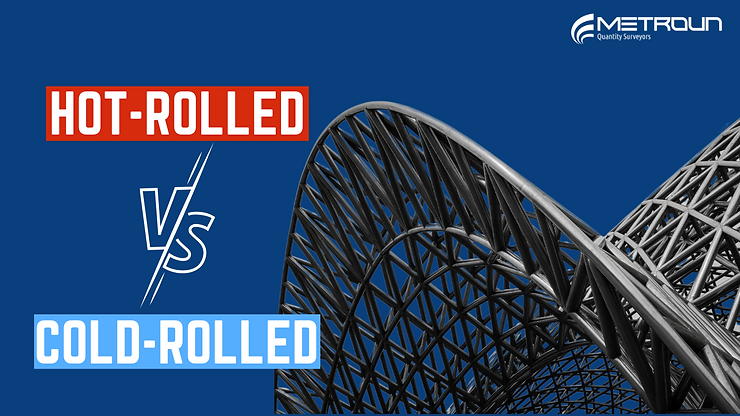To start off today’s post, let’s Define what steel actually is. Steel is an alloy of iron and carbon with small amounts of other elements added for various properties. It is a strong and durable material that is used in a wide variety of applications including construction, automotive and machinery.

Okay, let’s talk about the two main types of Steel that we’ll be discussing today, cold rolled steel and hot rolled steel
Hot rolled steel is often used in construction of large structural components, such as beams columns and steel frames.
Hot rolled steel has a rough surface finish, but is more ductile and less brittle than the cold rolled steel, making it well suited for construction applications which will be subjected to stress and strain. The main advantage of hot rolled steel is that it’s much cheaper to produce than cold rolled steel. It is also more forgiving in terms of its surface finish, making it ideal for applications where the steel will be painted or where a rough finish is not a concern.
Cold rolled steel on the other hand is often used in construction of smaller, more precise components such as brackets, screws and bolts. It is often used for the production of steel sheets and strips with a smooth surface finish and precise dimensions, which are often used in cladding and roofing applications. Cold rolled steel is more brittle than hot rolled steel, but it has a much smoother surface finish and more precise dimensions making it ideal for applications where a smooth finish or precise dimension is important.
Cold rolled steel is more expensive to produce than hot rolled steel as it requires additional processing.
Overall, both hot rolled steel and cold rolled steel have their own unique properties that are used within the construction industry for different purposes.
Hot rolled steel is typically used for production of large structural components, while cold rolled steel is often used for the production of smaller, more precise components.





